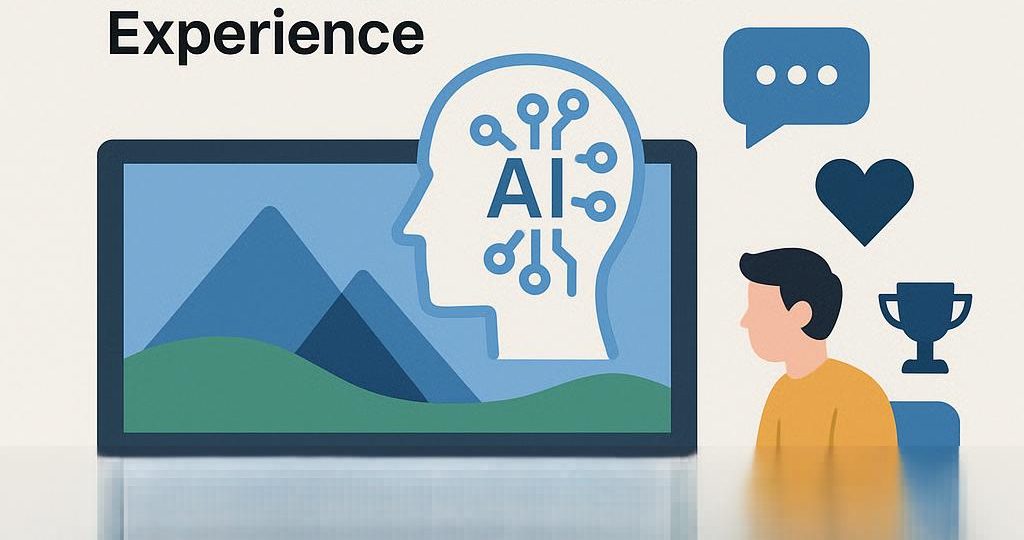
The Role of AI in Modern Online Games: Enhancing Gameplay and Player Experience
Introduction
Online games have changed dramatically in recent years, becoming smarter, more immersive, and increasingly personalized. One of the key reasons behind this transformation is the growing use of Artificial Intelligence (AI). AI has become an essential tool in game development, helping developers create better experiences while also giving players more dynamic, responsive, and engaging gameplay. Whether you’re a casual player or a competitive gamer, AI plays a role in shaping your experience behind the scenes.
Smarter Game Worlds with AI
One of the most noticeable ways AI has improved gaming is through smarter environments and characters. In the past, non-player characters (NPCs) often followed simple scripts, making their actions predictable and repetitive. Today, AI allows NPCs to act more naturally, adapt to player behavior, and even make strategic decisions.
For example, enemies in online games can now react to a player’s movements, take cover, call for help, or even retreat if needed. This makes gameplay more challenging and realistic. It’s no longer about memorizing patterns — players need to think and react, just like they would in a real-world scenario.
Personalized Gaming Experience
AI doesn’t only control how games behave — it also helps games understand the player. Modern games use AI to track how you play: how often you log in, what types of challenges you prefer, how quickly you improve, and even which characters or features you interact with most. This data helps the game adapt to your style.
For example, if a player prefers story-driven missions over competitive challenges, the game can start offering more narrative content. If someone enjoys fast-paced combat, the AI can adjust the game to deliver more of that action. This personal touch helps keep players interested and coming back for more.
Dynamic Difficulty and Challenge Balancing
Not everyone plays games at the same skill level. Some people are beginners, while others are experts looking for tough challenges. AI can adjust the difficulty of a game in real time based on how a player is performing. This is called dynamic difficulty adjustment.
If a player is struggling with a level, the AI might reduce the number of enemies or provide extra help. If a player is breezing through too easily, the AI can make things harder. This kind of adaptive design helps keep players in the “sweet spot” where they’re challenged but not frustrated — making the game more enjoyable.
Creating Endless Content
Another amazing use of AI in gaming is procedural generation. This means that the game creates new environments, missions, or levels on its own using AI systems. This is especially useful in large online games where developers want to give players something new to explore all the time.
Instead of hand-crafting every single detail, developers let the AI generate maps, quests, or dungeons that feel fresh each time. The result is more variety and longer-lasting fun without requiring constant updates from the developers.
Fighting Cheaters and Improving Fair Play
Online games often face problems with cheating or unfair behavior. AI helps game developers monitor gameplay in real time to detect suspicious activity. If someone is using hacks or trying to gain an unfair advantage, the AI can flag it instantly and take action — like issuing a warning or banning the player.
This protects fair players and keeps the gaming environment clean and balanced. It also reduces the amount of work human moderators need to do, since AI can handle much of the initial review and filtering automatically.
Faster and Smarter Game Testing
Before a game is released, it needs to be tested for bugs, glitches, and balance problems. Traditionally, this process could take weeks or even months of manual testing. Today, AI-powered bots can run through games quickly, finding issues and testing different actions thousands of times faster than human testers could.
This makes development more efficient, reduces mistakes, and helps developers release polished, high-quality games sooner — which benefits both the creators and the players.
The Future of AI in Online Gaming
The use of AI in games is still growing. In the future, we might see even more advanced AI that can build entire game worlds, respond to voice commands in real time, or create storylines that shift based on player choices in a deeply meaningful way.
Imagine playing an online role-playing game where the storyline evolves differently for every single player, depending on what they say and do — all powered by AI. These kinds of innovations could make online gaming more personal, immersive, and emotional than ever before.
Conclusion
AI is playing a powerful role in shaping the future of online games. From smarter enemies and personalized gameplay to automated testing and real-time security, it’s making games more fun, fair, and engaging. The best part? Most players don’t even notice it — they just enjoy a smoother, richer experience.
As technology continues to improve, AI will open up even more creative possibilities, giving both developers and gamers new tools to explore virtual worlds in exciting and unexpected ways.